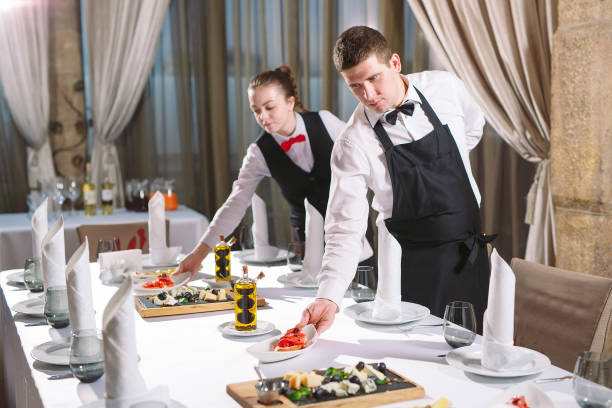Your resume is often the first impression you make on a potential employer. In the competitive world of food service jobs, a well-crafted resume can be the key to landing your dream position. Whether you’re applying for a job as a server, bartender, chef, or any other role in the food service industry, there are certain dos and don’ts you should keep in mind to create a resume that stands out from the crowd.
The Dos:
1. Start with a Strong Summary or Objective Statement
Begin your resume with a clear and concise summary or objective statement. waitress jobs staten island This should be a brief introduction that highlights your relevant skills, experience, and career goals. Tailor it to the specific job you’re applying for and make it engaging to catch the recruiter’s attention.
2. Highlight Relevant Skills
In the food service industry, specific skills are highly valued. List skills such as food preparation, customer service, menu knowledge, and POS system familiarity prominently. Use bullet points to make them easy to scan.
3. Emphasize Relevant Experience
Your work experience is crucial, so include detailed information about your past food service roles. Focus on achievements and responsibilities that directly relate to the job you’re applying for. Use action verbs like “served,” “prepared,” and “managed” to describe your duties.
4. Include Quantifiable Achievements
Whenever possible, include quantifiable achievements to demonstrate your impact. For example, mention how you increased table turnover, reduced wait times, or received positive customer feedback. Numbers and percentages can make your accomplishments more compelling.
5. Customize for Each Application
Don’t use a one-size-fits-all approach. Tailor your resume for each job application. Highlight the skills and experiences that align with the specific requirements and qualifications listed in the job posting.
6. Education and Certifications
Include your educational background and any relevant certifications, such as food safety or bartending licenses. Mentioning these credentials can give you an edge over other candidates.
7. Use a Clean and Readable Format
Make your resume visually appealing and easy to read. Use a clean, professional font and format your document consistently. Use bullet points, headers, and subheadings to organize information.
8. Proofread and Edit
Errors on your resume can leave a negative impression. Proofread your document carefully to eliminate typos, grammatical mistakes, and inconsistencies. Consider asking a friend or family member to review it as well.
The Don’ts:
1. Don’t Include Irrelevant Information
Avoid including personal information, such as your age, marital status, or hobbies, unless it’s directly relevant to the job. Focus on professional details that showcase your qualifications.
2. Don’t Exaggerate or Lie
Honesty is crucial. While you want to present yourself in the best light, avoid exaggerating your skills or experiences. False information can be discovered during background checks and interviews.
3. Don’t Use a Generic Template
A generic, one-size-fits-all resume template can make you blend in with other applicants. Create a unique document that reflects your individuality and suitability for the specific job.
4. Don’t Neglect Keywords
Many employers use applicant tracking systems (ATS) to screen resumes. To increase your chances of passing this initial scan, incorporate relevant keywords from the job description into your resume.
5. Don’t Overwhelm with Details
While you should provide enough information to demonstrate your qualifications, don’t overwhelm the reader with excessive details. Keep your resume concise and focused on the most critical points.
6. Don’t Forget to Update
As your skills and experiences evolve, so should your resume. Regularly update your document to reflect your latest accomplishments and qualifications.
7. Don’t Include Negative Information
Avoid including negative experiences, such as job terminations or conflicts, on your resume. Focus on the positive aspects of your career and how you’ve grown from challenges.
8. Don’t Ignore Online Profiles
In today’s digital age, many employers may look up your online presence. Ensure that your LinkedIn profile and other professional social media accounts align with the information on your resume.
Crafting an effective resume for a food service job requires careful consideration of the dos and don’ts outlined above. By presenting your skills and experiences in a clear, tailored, and honest manner, you can increase your chances of landing the food service position you desire. Remember that your resume is your ticket to the interview stage, so make it count.







